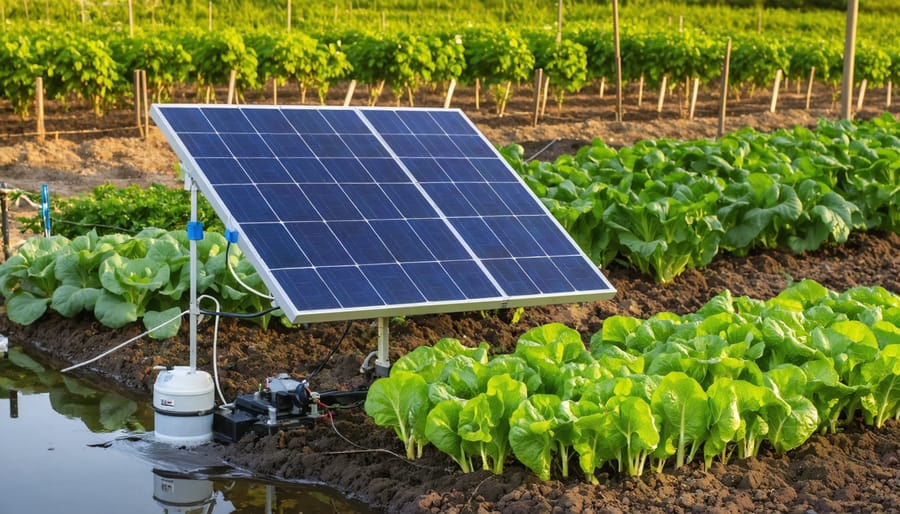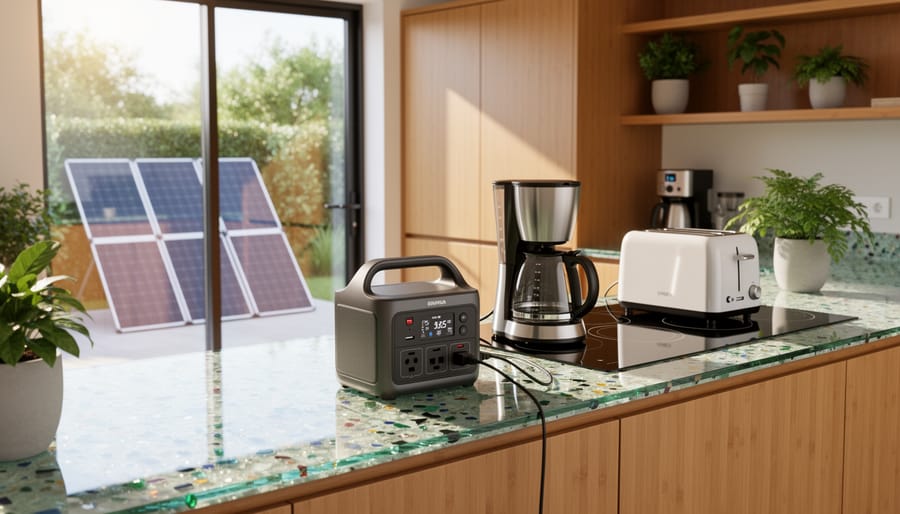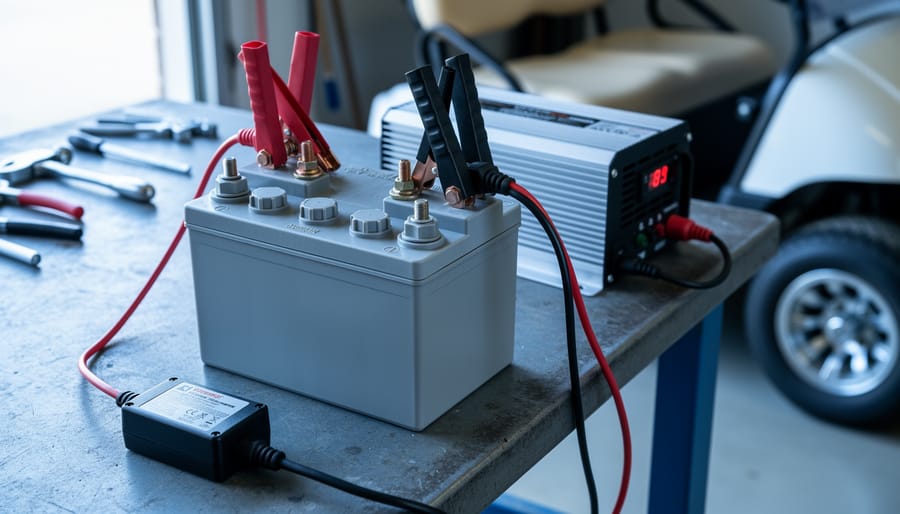Solar-Powered Water Tanks: Revolutionizing Sustainability
Updated:

Water is a fundamental element of life, but its scarcity often poses a major hindrance for many. Technological advancements have continually sought out innovative ways to tackle this issue, with one of the latest being the solar-powered water tank. Embodying an ingenious blend of renewable energy application and water storage solutions, solar-powered water tanks are changing the game in terms of environmental sustainability.
The Solar Power Concept
Before delving into specifics, understanding the core concept behind this innovation is crucial. The use of solar power refers to harnessing the energy emitted by the sun and converting it into electricity that can fuel various functions. While it’s traditionally associated with providing power for buildings, more innovative applications like solar powered water tanks are beginning to surface.
Fundamentally, these tanks exemplify how renewable energy sources can be employed to help deal with some of our most pressing global issues – from climate change to water scarcity. Efficiency, sustainability, and affordability are what make these sun-powered units stand out among other solutions on the market.
Tackling Water Scarcity
Faced with a skyrocketing global population and increased demand, water supplies in several regions are under immense pressure. In addition to this stress from consumption rates, climate change also threatens availability by altering precipitation patterns and accelerating evaporation.
Solar-powered water tanks present a reliable solution in areas particularly prone to water scarcity. Relying on the sun’s energy instead of scarce ground or city water options, these units provide an eco-friendly and sustainable supply line.
Components of Solar-Powered Tanks
The primary components of a typical solar-powered tank are threefold: a photovoltaic array (solar panel) that captures solar energy, a water pump powered by the captured energy, and the tank itself that collects and stores the processed water.
These parts work synergistically. The solar panels harness sunlight and convert it into DC electricity. This electricity then powers the pump, which pushes water towards the storage tank.
Solar Energy Collection
Essentially, solar energy collection is at the heart of this system’s operation. During daylight hours, solar arrays on top of the tank capture sunlight. These photovoltaic cells embedded in these arrays generate enough energy to run an electric water pump.
It’s worth noting that the efficiency of these systems isn’t solely dependent on direct sunlight. Solar panels on your water tank can harness optimal power even when it’s cloudy because they adapt to diffuse light just as well.
Energy Conversion Processes
The conversion process lies at the heart of the function of a solar-powered tank. After capturing sunlight, photovoltaic cells in solar panels convert this raw energy into usable electricity (Direct Current – DC). However, since most appliances operate on Alternating Current (AC), a device called an inverter is needed to facilitate this switch.
This transformed power now proceeds to fuel the water pump. Depending on their construction and powering capabilities, such pumps could even pump up water from great depths or transport them across lengthy distances to your coveted spot.
Eco-Friendliness of Solar Tanks
Promoting environmental sustainability is perhaps one of the most benefits offered by solar-powered tanks (https://www.watertankfactory.com.au/water-tanks-toowoomba/). Unlike traditional electricity that largely relies on fossil fuels for production, solar power emits no harmful gasses during its consumption.
Additionally, using freely available sunlight hinged with efficient conversion processes reduces waste output to negligible levels. In sum total, you will be lending valuable service towards protecting the Earth while meeting your water storage needs.
Energy Efficiency
Solar tanks stand out due to their high energy-efficiency profile. Once the initial setup and installation costs have been covered, ongoing operational expenses are negligible – primarily because sunlight, the main “fuel,” is free.
The total amount of electricity required to power these units is significantly less than that demanded by alternative solutions. These factors combine to ensure solar tanks consume minimal resources whilst diligently delivering water storage services.
Cost Considerations
Financially, solar water tanks offer considerable savings in the long run. While the initial price tag of purchasing a system might seem daunting to some users, it’s crucial to look at the broader picture when considering its worth. Yes, you’ll pay upfront for the solar panels, storage tank, water pump, and installation fees.
However — due to its low operational costs and maintenance demands — over time, your investment will pay off. Moreover, compared to the rising prices of standard energy sources, solar power provides a constant and free source of energy.
Maintenance and Lifespan
Maintenance is another area where solar-powered water tanks shine. Exceptionally durable and robust, these tanks can withstand harsh weather conditions and last a long time. Component wear and tear is low with occasional cleaning of panels being one of the few maintenance requirements.
Furthermore, manufacturers typically offer prolonged warranties – sometimes as long as 25 years. Therefore, users can expect dependable service from their systems for an extended period.
Installation and Set-up
The installation process requires careful planning to maximize efficiency. Factors such as location, sun exposure, and angulation all play significant roles in ensuring optimal function. It’s advised to seek assistance from professionals who can provide expert guidance during this phase.
Post-installation adjustments may be necessary to fine-tune the system to your needs and deliver optimal performance.
Government Incentives
Many governments across the globe offer attractive incentives to encourage the uptake of renewable technologies such as solar water tanks. Such schemes could considerably lower the initial financial outlay by providing subsidies or tax breaks. Be sure to check out what’s on offer in your locality before making an investment decision.
Agrarian Applications
Solar-powered tanks have found significant utility in agricultural setups. Rural areas frequently face issues with water supply, necessitating an alternative, sustainable solution. Solar water storage systems can be deployed for uses like irrigation, livestock watering, and aquaponic farming operations.
Rural Vs Urban Utilization
Both urban and rural areas draw distinct advantages from the usage of solar water tanks. In rural settings, they offer a crucial lifeline to overcome water scarcity issues. On the other hand, within urban structures, these tanks play a vital role in mitigating the effects of peak demand, supplementing city supply, and aiding rainwater harvesting efforts.
Solar Tank Innovations
The field of solar technology is one of constant innovation and evolution. Better photovoltaic cells have resulted in increased efficiencies, while recent advancements such as smart controllers and IoT integration have further improved the functionality of solar water tanks. These exciting developments make it an arena worth paying attention to.
Futuristic Perspectives
The future certainly looks bright for renewable energy solutions like solar-powered water tanks. As the world continues to grapple with climate change and diminishing natural resources, technologies that colonize renewable energy effectively will bear increasing significance.
Developments on the horizon include even more efficient photovoltaic cells, increased tank capacities, and integration into emerging smart grid technologies. It feels safe to say; solar-powered water tanks present a forward-looking solution towards a greener future.
Conclusive Summary
Solar-powered water tanks are an ingenious solution that blend water security with renewable-energy sustainability. They offer unrivaled benefits regarding cost-effectiveness, eco-friendliness, and prolonged lifespan. By demanding minimal maintenance efforts and thanks to advancements in the tech, the usage and efficiency of these systems promise to significantly improve in the future. Overall, solar powered water tanks provide a comprehensive, future-ready solution — putting the sun at your service.









